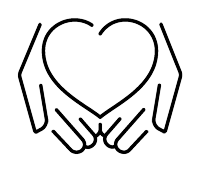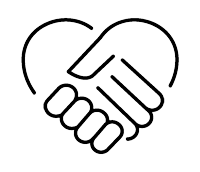
ROCK thru when we're not our best selves
by Lee Havenga | December 1, 2022
RESPECT

Fear can be a strong force driving us to act against our integrity. Like when we tell a white lie because we are afraid of someone’s response to the truth. When we don’t act like the best version of ourselves, we can still know we are valuable without excusing the behavior.
Apply it
We all have insecurities, pains, and losses that are the undercurrent of our regrettable actions. Approach each interaction, especially the challenging ones, with an understanding that we are all doing the best we can. Don’t beat yourself up when you behave poorly. No good actions emerge from feelings of shame. But, let be clear, it’s not a free pass to mistreat yourself or others. Instead, it’s an invitation to forgive yourself, to know that you are human and make mistakes. This will help you get to an emotional place where you can feel empowered to take Ownership of your behavior, so you can make it right.
OWNERSHIP

Taking Ownership of our undesirable behavior can be challenging. It’s hard to admit when we’ve acted in a way against the person we want to be or think we are. But taking Ownership is the only way to heal the pain you’ve caused.
Apply it
We almost always know, deep down inside, when we have hurt someone. Take Ownership to repair the hurt using the three A’s: Become Aware of the pain you caused. Accept it by acknowledging it to yourself. Take Action by reaching out to apologize.
Reflecting on the past week, is there a moment when you weren’t your best self? Even if it’s something that doesn’t seem like a “big deal,” like a comment that came out the wrong way. If something comes to mind, you’ve already done steps 1 and 2, and you’ve become aware and accepted your behavior as not representing your integrity. Step 3 is taking action. What can you do to make it right? If you acknowledge and apologize, you have cared for a wound in a relationship. Apologizing doesn’t have to be a big production. It can simply be, “Yesterday, when I made the comment about you not working over the weekend, I realize that might have been insensitive. I’m sorry that I said that.”
Even if the recipient brushes it off with a nonchalant reply like, “Oh, that was no big deal,” it will be apparent that you care enough about the relationship to ensure they weren’t hurt. And more than likely, they were hurt but didn’t know how to accept the apology graciously. The more you practice after the minor faux pas, the better prepared you’ll be to take Ownership of a more significant action you regret.
CONNECTION

We often have the misconception that apologizing is a sign of weakness. On the contrary, overcoming your big, hairy ego takes herculean strength.
Apply it
When we mess up in a relationship, and we do all the time, an apology conveys that we value the person and the relationship. We all want to be reminded that we matter. So, make a Connection next time you make a mistake in a relationship, whether it be in marriage or friendship, at work, or with your kids. Apologize and show that you care more about the person than your ego.
Read more about why it’s important to apologize in relationships .
KINDNESS

Because we are humans that have bad days, we won’t always be kind. Sometimes our emotions get the best of us, and we say and do things we don’t mean. The ROCK thru definition of Kindness is “generous consideration through action.” Admitting fault and making it right is one of the most generous acts of Kindness.
Apply it
To whom do you owe an apology? Be courageously kind.
Get more like this, right to your inbox
Want to inspire a friend?
Forward this on so they can
ROCK thru too!


